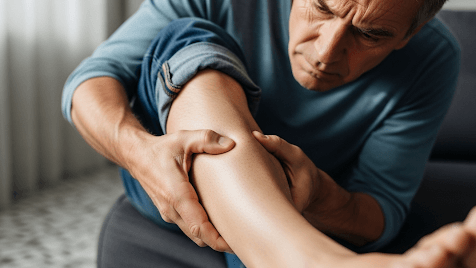
Understanding Infected Ear Piercings: What You Need to Know
Adding an ear piercing is an exciting way to express yourself, but what happens when it goes wrong? If you’ve recently jumped into the cartilage piercing trend, you might be worried about the possibility of an infection. According to doctors, nearly 30% of people may experience such infections post-piercing. Let's dive into what an infected ear piercing looks like, how to treat it, and crucially, how to prevent it in the future.
Recognizing the Signs of Infection
Itchy, burning, or throbbing sensations are the primary indicators of infection, alongside physical signs like swelling or discharge. Maria Korneeva, a seasoned dermatologist, elaborates that these symptoms usually arise when the delicate skin around your piercing has come into contact with bacteria. Understanding these signs can lead to quicker intervention, which is crucial for proper healing.
How Does an Ear Piercing Become Infected?
Infections can result from various factors. The most common culprits are inadequate sterilization before the piercing or poor aftercare following the procedure. Kenneth A. Kaplan, MD, an otolaryngologist, explains that twisting or turning the earring can further irritate the fresh wound, significantly increasing the risk of infection. Careful aftercare during the typical six-week healing period is essential to avoid complications and ensure a smooth transition to your desired jewelry.
Understanding the Risks: Cartilage vs. Lobe Piercings
Cartilage piercings are particularly notorious for infection; the blood supply in this area is lower than in lobe piercings, according to Leila Mankarious, MD. This can leave cartilage piercings up to 40 times more susceptible to infections. If you’ve booked an appointment for cartilage intervention, be sure to know these vital facts: gentle handling and diligent upkeep are your best defense.
Taking Action: How to Treat an Infected Piercing
Have you found yourself on the receiving end of infection? Don't panic. Treatment often includes keeping the area clean, avoiding irritating substances, and possibly seeking professional help if symptoms worsen. Dr. Kaplan recommends saline solution soaks to flush out bacteria, and in some cases, topical antibiotics may be necessary. Monitoring your ear closely will help ensure it returns to its former glory.
Prevention is Key: Best Practices to Keep Infections at Bay
Avoiding infection starts before you even get your ears pierced. Opt for a clean, reputable piercing studio that prioritizes hygiene. Post-piercing, resist the urge to touch your earrings too often, and follow prescribed aftercare protocols diligently. This guidance can significantly reduce the risk of complications.
Coping with Infected Piercings: Emotional and Physical Strategies
Being part of the nearly 30% who face an infection might feel isolating, but you’re not alone. The emotional toll of dealing with an infection can be challenging. Connecting with friends who've had similar experiences can offer practical advice and reassurance, making the healing journey less lonely. Share your experiences and strategies on social media or local forums. This not only creates community support but helps destigmatize the challenges of this journey.
When to Seek Professional Help
If your symptoms extend beyond mild irritation—such as increased swelling, persistent pain, or fever—seeking medical attention is crucial. Consult a healthcare provider who can offer personalized treatment options tailored to your needs. Don't hesitate to ask questions; empowered patients typically have better outcomes.
Final Thoughts: Celebrate Your Self-Expression with Confidence
Your piercing is part of your self-expression, and while infections can put a damper on your plans, being informed and prepared will empower you to tackle any challenges that arise. With the right information in your back pocket, you can confidently flaunt your unique style!
If you found this information helpful and want to learn more about women's health and wellness, consider exploring tips on maintaining a fitness lifestyle and other ways to support your body through exercise. Stay informed—your body and your health deserve it!
 Add Row
Add Row  Add
Add 




Write A Comment